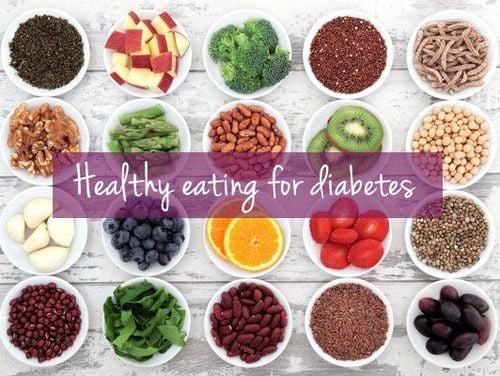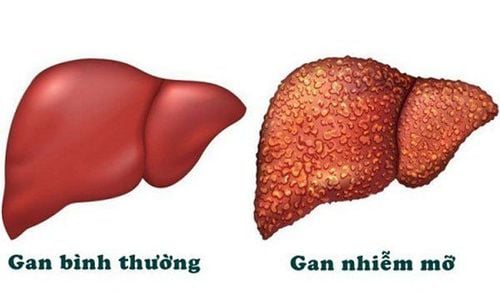Eggplant is a type of fruit from the Solanaceae family, commonly used in various dishes worldwide. While eggplants vary in size and color, the most common variety has a deep purple skin. In addition to adding a unique texture and mild flavor to recipes, eggplants also offer several health benefits, including aiding in weight loss.
1. Overview of Eggplant
Although often considered a vegetable, eggplant is technically a fruit because it develops from a flowering plant and contains seeds. Typically, people recognize eggplants by their glossy purple skin and tear-drop shape, but this versatile fruit comes in many colors and shapes. At local markets worldwide, you can find oval, long, and slender eggplants or those shaped like a melon, with skins in white, green, pink, orange, or even striped patterns.
When you cut into an eggplant, the flesh is white, sometimes tinged with green or yellow, with small beige seeds scattered throughout. If the inside is brown, the eggplant may be spoiled. Eggplants are commonly used in European cuisine, much like potatoes, tomatoes, and peppers. Originating from India and Asia, eggplants arrived in Europe with the Islamic Empire in the 7th and 8th centuries. Historians believe the British coined the term "eggplant" during their occupation of India. Other names for eggplant include aubergine and brinjal. The flesh of eggplant is soft and creamy when cooked.
Here are some popular types of eggplant:
- Classic eggplant with glossy purple skin.
- Oval-shaped eggplants with dark purple skin.
- Black bell-shaped eggplants with a pear-like shape and shiny black skin.
- Long, white, and oval eggplants.
- Thin, light purple eggplants.
- Small, oval eggplants in white, orange, yellow, or green.
According to nutrition experts, 100 grams of eggplant contains the following nutrients:
- Energy: 25 Kcal
- Protein: 1 gram
- Fat: 0.2 grams
- Carbohydrates: 6 grams
- Fiber: 3 grams
In addition, 100 grams of eggplant contains the following vitamins and minerals:
- Folate: 22 micrograms
- Vitamin A: 23 IU
- Vitamin C: 2.2 milligrams
- Vitamin K: 3.5 micrograms
- Calcium: 9 milligrams
- Iron: 0.23 milligrams
- Magnesium: 14 milligrams
- Phosphorus: 24 milligrams
- Potassium: 229 milligrams

2. Eggplant's role in weight loss
In Austria, a research team from Graz University demonstrated eggplant's effect in reducing sweating, clearly seen as people in this region used eggplant for livestock feed. Additionally, eggplant helps improve blood circulation, reduce cholesterol and blood urea levels, making it beneficial for treating cardiovascular diseases, hypertension, obesity, diabetes, and gout. Due to its low calorie content (only 25 Kcal per 100 grams), eggplant is also considered an ideal food for weight loss diets.
The fiber in eggplants and other plants can help people manage their weight and prevent obesity. A high-fiber diet reduces the consumption of other foods since fiber promotes a feeling of fullness. Eggplants are high in fiber and low in calories, contributing to a healthy, low-calorie diet. However, eggplants can absorb a lot of oil when stir-fried or cooked. Anyone aiming to lose weight should consider steaming, boiling, or even eating them raw instead of frying.

2.1 Health benefits of eggplant
Eggplant has been a crucial part of traditional medicine for thousands of years. In ancient Indian Ayurveda, white eggplant was used to treat diabetes, and its roots were used to reduce coughing caused by asthma. While eggplant is not the most nutritious vegetable, it provides a significant amount of potassium and fiber.
With only 25 calories and less than 1 gram of fat per 100 grams, eggplant is an essential food in weight loss diets, as long as it's not fried in excess oil. Eggplant also contains antioxidants such as vitamins A and C, which protect the body's cells from damage and slow the aging process.
Eggplant contains a plant-based compound called polyphenols, which may help cells process sugar molecules better for diabetic patients. Initial lab studies on cells suggest that eggplant can protect the body from DNA damage that could lead to cancer. However, scientists need more time to study human trials before reaching a final conclusion.
The fiber, potassium, vitamin C, vitamin B6, and antioxidants in eggplants support cardiovascular health and help prevent metabolic heart diseases. A 2019 study showed that consuming foods rich in flavonoids, including anthocyanins, helps reduce inflammation, a factor that increases heart disease risk. A 2013 study found that women who consumed blueberries and strawberries (rich in anthocyanins) weekly had a 32% lower risk of heart disease compared to those who consumed fewer of these fruits. Another study concluded that women eating more anthocyanins had significantly lower blood pressure and less arteriosclerosis than those with a lower intake of these compounds.

2.2 Potential health issues from eating eggplant
Eggplants and certain other vegetables contain a chemical called solanine, which some believe exacerbates inflammation, making conditions like arthritis worse. While there is no solid evidence proving that the small amount of solanine in eggplant worsens arthritis symptoms, if you notice joint pain flaring up after consuming eggplant, it might be worth considering eliminating it from your diet. Rarely, individuals may be allergic to eggplant. Symptoms of an eggplant allergy include rashes, facial swelling, itching, hives, and hoarseness.
3. How to prepare eggplant for maximum weight loss effectiveness
Before cooking eggplant, wash it and cut off both ends. The skin is edible but is often removed because it can be tough. Eggplant naturally has a slightly bitter taste, so it's recommended to sprinkle it with salt and let it sit for 30 minutes. The salt will reduce the bitterness and prevent eggplant from absorbing too much oil, which can make it greasy while cooking. Be sure to rinse the salt off before cooking.
You can roast, bake, steam, or stir-fry eggplant. When chopped, it makes a great addition to curries and soups. Europeans enjoy a recipe called eggplant parmesan, but keep in mind that breading and frying eggplant increases its calorie and fat content. For weight loss, it's better to bake eggplant rather than fry it. To bake whole eggplants, pierce the skin with a fork, similar to baking potatoes. After about 30 minutes in the oven, you can scoop out the flesh and stuff the eggplant or mash it into soups, stews, or dips. Don’t cut eggplant until you’re ready to cook it as it spoils quickly. Instead, store it in the refrigerator to keep it fresh for up to a week.
Eggplant can be a great addition to a healthy diet full of fruits and vegetables, providing low energy and fat content for weight loss. The polyphenol compound in eggplant can contribute to its bitter taste, which many people dislike. Nonetheless, eggplant offers numerous health benefits, particularly for cardiovascular health. There are various ways to prepare eggplant to maximize its weight loss benefits.
Reference sources: webmd.com, medicalnewstoday.com, viendinhduong.vnPlease dial HOTLINE for more information or register for an appointment HERE. Download MyVinmec app to make appointments faster and to manage your bookings easily.
To arrange an appointment, please call HOTLINE or make your reservation directly HERE. You may also download the MyVinmec app to schedule appointments faster and manage your reservations more conveniently.








